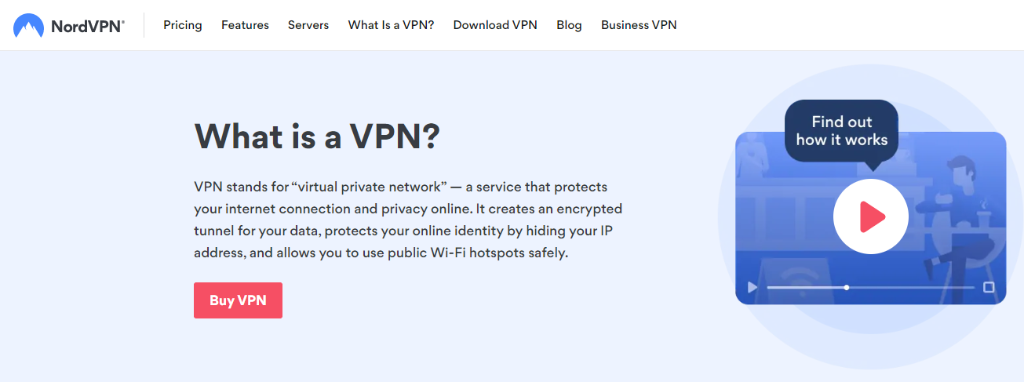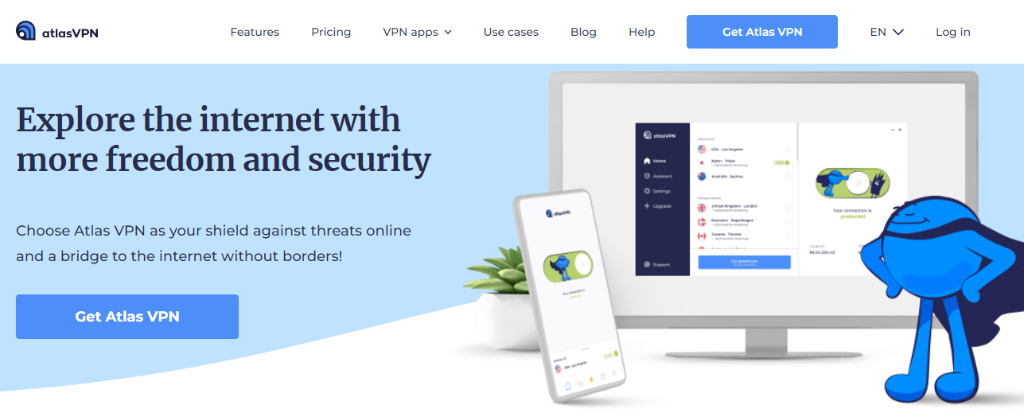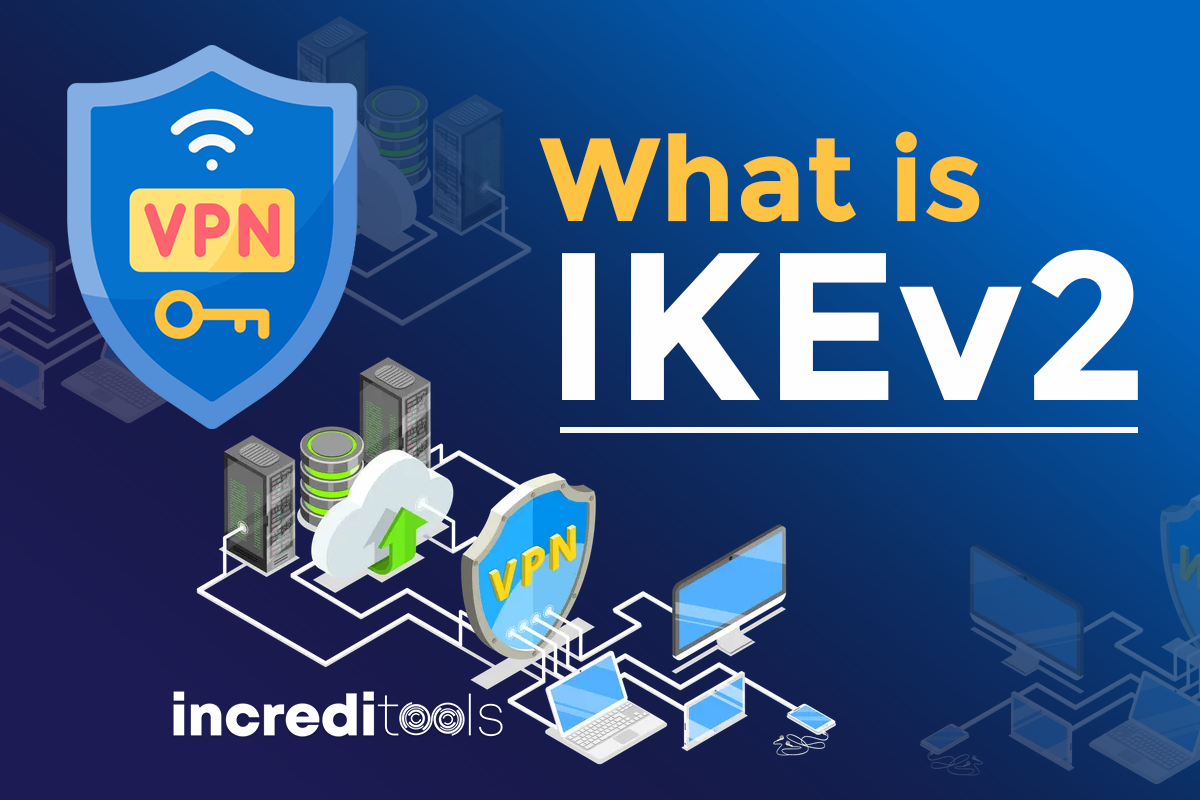
What is IKEv2? -Everything You Need to Know
Posts by Colin TanApril 11, 2023
Have you ever heard of a secret agent who could connect to any network, anywhere in the world, without anyone noticing?
A protocol so secure that even top-secret government agencies use it to protect their sensitive data?
Well, let us introduce you to IKEv2 — the undercover operative of the VPN world.
In the world of online security and privacy, VPN protocols are the unsung heroes that work silently in the background to protect our digital footprints.
Among these protocols, IKEv2 stands out for providing both security and speed, making it a popular choice for VPN users worldwide.
IKEv2 (Internet Key Exchange version 2) is a protocol that can slip past even the most vigilant cyber guardians and unlock any content you desire.
It’s the proverbial cloak of invisibility for your online activity, ensuring that your private data stays private, even if someone tries to intercept it.
But, just like a spy, IKEv2 is more than just a smooth talker.
It’s a strategic mastermind that can adapt to any situation, from a dodgy Wi-Fi connection to a heavily censored country.
Think of IKEv2 as a secret weapon in the fight against cybercrime.
It’s the James Bond of online security, quietly working behind the scenes to protect your data from hackers and cybercriminals.
But here’s the thing – while IKEv2 is considered one of the most secure VPN protocols out there, not many people know much about it.
It’s like that secret superhero who saves the day behind the scenes without getting any credit.
So, let’s pull back the curtain on this underappreciated protocol and give it the recognition it deserves.
In this post, we’ll take you on a journey through the world of IKEv2. From its origins to its hidden talents, we’ll cover it all.
But we won’t just stop there. We’ll also show you how to harness its powers to keep you safe and secure online, whether you’re a tech expert or a casual internet user.
So, if you’re curious about what is IKEv2 and want to learn everything there is to know about this fascinating VPN protocol, then join us on this journey.
Buckle up and get ready to go undercover with IKEv2 and uncover the secrets of the VPN universe.
What is IKEv2: An Overview of Its Role in Online Security

Security concerns have plagued us since the early days of the internet.
As our lives have become increasingly digital, our reliance on technology has left us vulnerable to cyberattacks, identity theft, and other forms of online crime.
We’ve seen high-profile hacks and data breaches at some of the world’s biggest companies, from Equifax to Yahoo.
It’s clear that we need to take online security seriously.
Talking about security, have you ever wondered how your device securely communicates with the websites you visit?
As you read these words, a flurry of data is likely zipping back and forth between your devices and the online world.
You might not think much about the intricate dance of encryption and decryption that makes that data secure.
However, a lot is going on behind the scenes to keep your private information safe.
One key player in that dance is IKEv2, a VPN protocol that’s been around since 2005.
But what is IKEv2? Well, imagine walking down a busy street in the middle of a bustling city.
People, cars, and noise surround you. Suddenly, you hear a faint whisper in your ear.
It’s a secret message, and only you can hear it. You look around, but no one seems to notice you.
You realize that the message was sent through an encrypted tunnel, hidden from the prying eyes of the outside world.
That’s the power of IKEv2.
How IKEv2 Works — A Closer Look at Its Encryption and Security Features
As discussed in the previous sections, IKEv2 is a VPN protocol that is critical in keeping our online communication secure.
Now, let us illustrate this with the help of an example that might help shed some light on the matter.
Let’s say you’re a spy working for a top-secret agency, and you need to send confidential information to your headquarters without it falling into the wrong hands.
You know that the information will be intercepted by enemy agents who will stop at nothing to decode it.
So, what do you do? You turn to IKEv2, the protocol designed to secure your communication channel and protect your sensitive data from prying eyes.
But how does it work? Let’s go back to the illustration.
To continue with the example, you’re a spy trying to exchange secret information with your headquarters or fellow operative.
You don’t want anyone to intercept your message, so you use a code to scramble your message into an unreadable jumble of characters.
In the same way, IKEv2 uses encryption to scramble your data into an unreadable mess that only the intended recipient can decipher.
It establishes a secure tunnel between your device and the remote server.
This tunnel ensures that all data passing through it is encrypted and secure. But what happens if someone tries to intercept your encrypted message?
They may not be able to read it, but they can still tell who you’re communicating with.
This is where IKEv2’s second layer of protection comes into play. IKEv2 uses a technique called Perfect Forward Secrecy (PFS).
PFS ensures that even if someone does manage to intercept your message, they won’t be able to decipher it.
How does it do that? Well, it all starts with a handshake.
No, not the kind where you greet someone with a firm grip and a smile.
This cryptographic handshake sets up a secure communication channel between your device and the VPN server.
This handshake involves a series of messages that are exchanged between your device and the server.
Each of these messages contains a key that is used to encrypt and decrypt the data.
But here’s the twist: the keys are not just random strings of characters.
They are derived from a secret shared by your device and the server, generated during the initial negotiation phase.
This secret is like a magic potion that only the two of you know, and it’s used to derive the keys that will be used for encryption and decryption.
If IKEv2 detects any suspicious activity, it will immediately terminate the session.
It will then start a new session and generate a new set of encryption keys, making it virtually impossible for anyone to decrypt your message.
Types of Messages and Exchanges in IKEv2
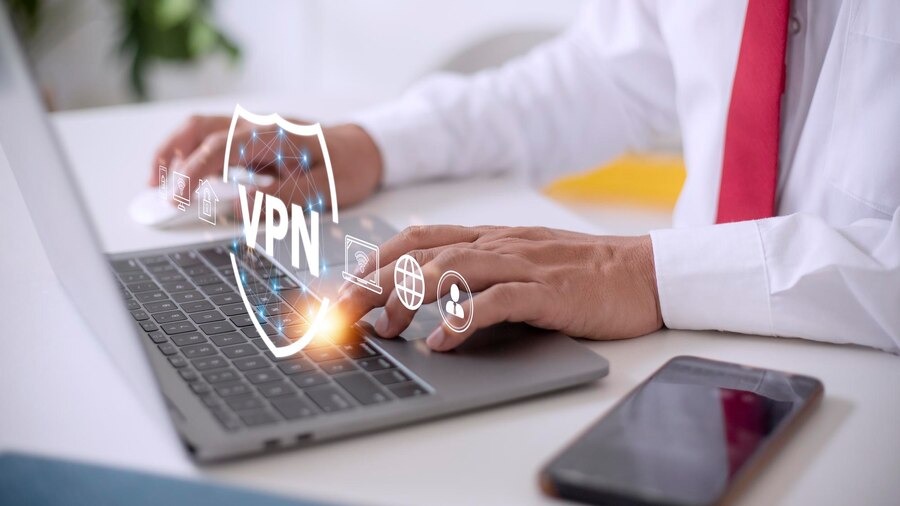
As you delve deeper into the world of IKEv2, you’ll discover that this protocol supports various messages and exchanges.
Each message serves as a building block for secure communication between two devices.
Understanding the intricacies of these messages is essential to unlocking the true power of IKEv2.
So, let’s explore some of the most interesting types of messages and exchanges that IKEv2 has to offer:
1. Initial Exchange (IKE_SA_INIT)
The Initial Exchange is the first step in establishing a secure communication channel between two devices.
During this exchange, the devices exchange information about their security capabilities and negotiate the encryption and authentication algorithms used.
2. Authentication Exchange
Once the initiation exchange is complete, the next step is authentication.
This involves verifying each other’s identity using a pre-shared key, digital certificate, or other methods.
Think of it like a digital handshake, confirming that both parties are who they claim to be.
3. Key Exchange
After the authentication exchange, the key exchange begins.
This exchange allows both parties to generate a shared secret key, which will be used to encrypt and decrypt all data sent over the VPN connection.
Several key exchange methods exist, including Diffie-Hellman, RSA, and Elliptic Curve Cryptography.
4. CREATE_CHILD_SA Exchange
Once the keys are exchanged, the Child SA Creation message creates a secure communication channel.
This message sets up the parameters of the security association, including the lifetime of the security association and the security protocols to be used.
It’s like signing a contract to make the secure channel official.
5. Informational Exchange
The Informational Exchange is mostly used to exchange non-critical messages between devices.
This can include messages related to the status of the IKEv2 SA and other administrative messages.
Benefits of IKEv2 — Why It Is a Preferred VPN Protocol
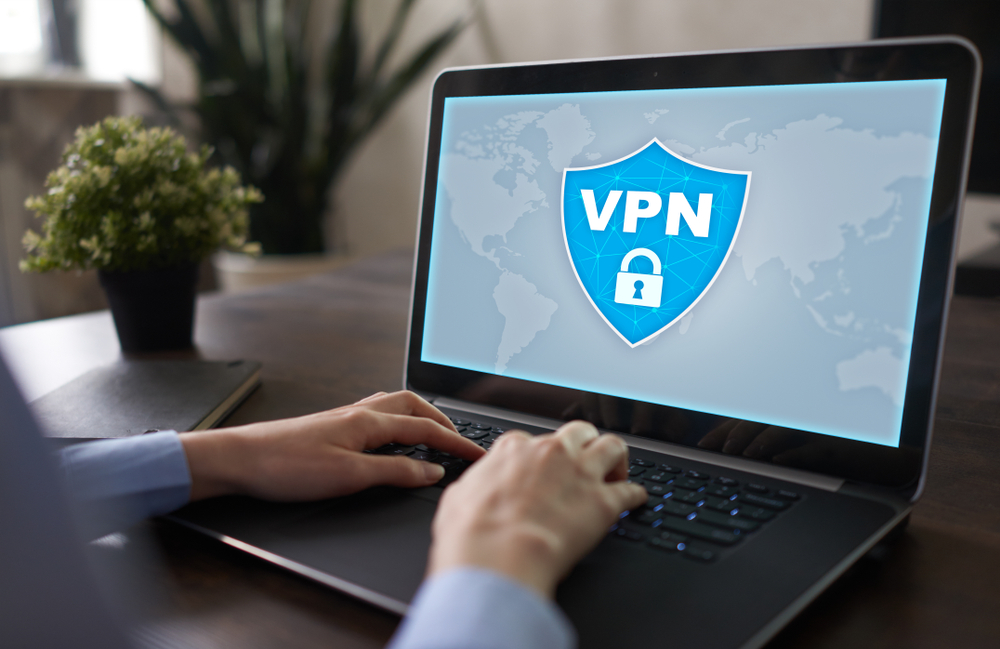
When it comes to Virtual Private Networks (VPNs), the choice of the protocol can make all the difference.
While there are many protocols, IKEv2 has emerged as a favorite among many VPN users. But why?
What makes IKEv2 so special? Well, this versatile protocol offers a host of benefits that make it a top choice for VPN users around the world.
Here are just a few reasons and unique benefits of IKEv2 that make it the preferred VPN protocol for many savvy users:
1. Lightning-fast Speeds: Say Goodbye to Buffering
IKEv2’s ability to maintain a stable connection even during network switches allows it to offer blazing-fast connection speeds.
Its ability to handle multiple connections concurrently makes it a perfect fit for mobile devices.
IKEv2 ensures that users experience minimal disruption while maintaining a consistent connection speed.
This feature lets you enjoy seamless streaming, fast downloads, and lag-free gaming.
2. Rock-Solid Security: Keep Your Data Safe
IKEv2 is known for its rock-solid security. It uses state-of-the-art encryption to hide your online activity from prying eyes, making it an ideal VPN Protocol.
Plus, with its built-in support for PFS, IKEv2 ensures that even if a hacker intercepts the traffic, they cannot decode it.
3. Multi-Platform Support: Access Any Content on Any Device
One of the most significant advantages of IKEv2 is its flexibility and compatibility with a wide range of platforms and devices.
Whether you’re using Windows, macOS, iOS, Android, or Linux, IKEv2 can be easily configured to work on your device.
This makes it an excellent choice for users who want to use the same VPN on multiple devices.
4. Seamless Connectivity: Switch between networks smoothly
IKEv2 is designed to provide seamless connectivity, even when switching between different networks.
It can transition between Wi-Fi, mobile data, and even different network providers without interrupting the connection.
Plus, IKEv2 supports automatic reconnection. It means you can quickly reconnect to the VPN even if your connection is lost or interrupted.
This ensures you have a continuous connection without downtime, regardless of your network.
5. Low Resource Consumption: Save Your Battery Life
IKEv2 is a battery-efficient protocol that conserves power consumption while providing a secure and stable connection.
It is designed to be efficient and lightweight, consuming minimal resources and helping you save your battery life.
Limitations and Drawbacks of IKEv2
As with any technology, it’s important to understand the limitations and drawbacks of using IKEv2.
So, let’s explore some of the lesser-known issues that can arise when using IKEv2.
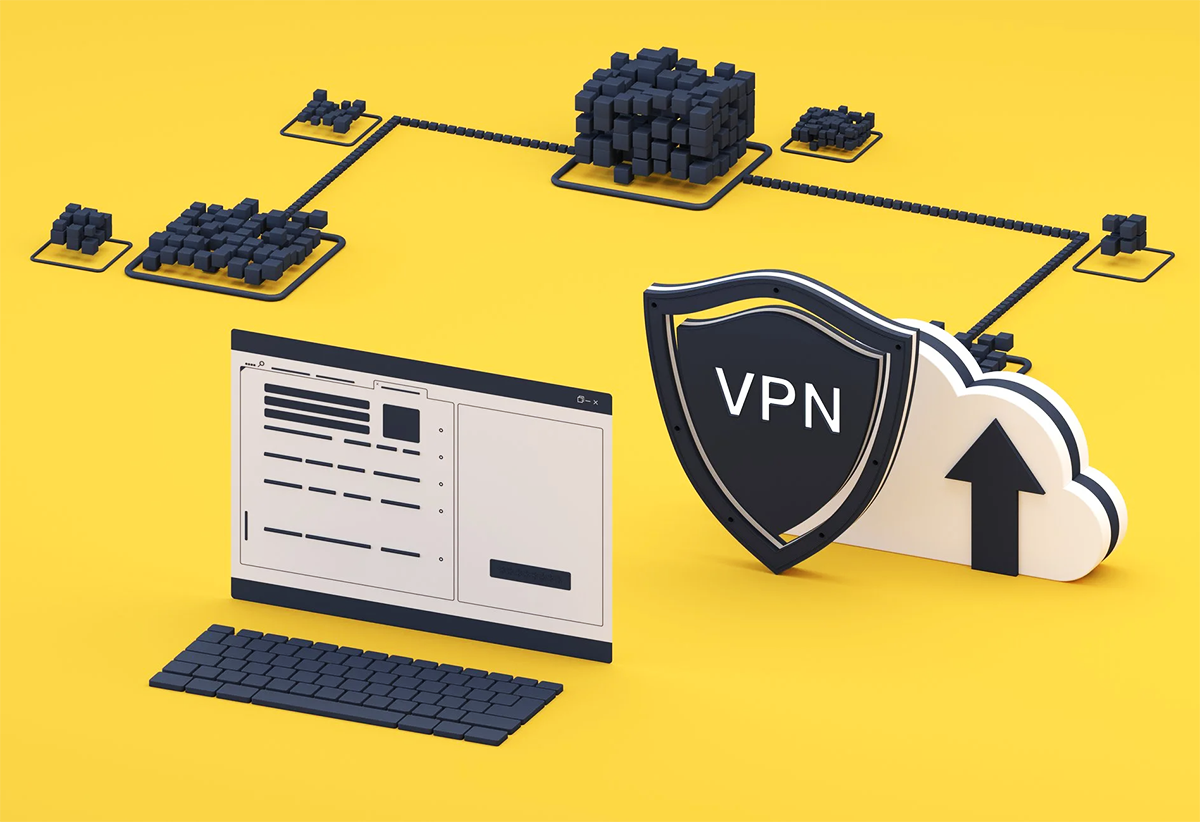
1. Limited Compatibility with Older Devices
While IKEv2 is widely supported on modern devices, it may not work on older devices without the necessary software or hardware.
This can be a major drawback for those who rely on older hardware and cannot benefit from its security features.
2. Vulnerability to DDoS Attacks
IKEv2 uses a predictable packet sequence during the initial handshake process.
This makes it susceptible to DDoS attacks that flood the connection with numerous requests.
It can result in a slowdown or complete disruption of the VPN connection, rendering it useless.
However, modern IKEv2 implementations have built-in features to prevent this, including rate limiting and traffic filtering.
3. Centralization of Control
IKEv2’s central authentication servers and key distribution mechanisms can create a single point of failure.
This introduces vulnerabilities exploitable by attackers and may result in potential data breaches.
Nevertheless, note that IKEv2 also supports distributed authentication with multiple authentication servers to help mitigate this risk.
Best VPN Providers That Offer IKEv2
Now that we’ve covered everything about IKEv2, it’s time to unveil our top picks for the best VPN providers that come with IKEv2.
But we’re not just going to recommend any VPN service that merely offers this protocol.
We’ve picked the top-rated VPNs that not only offer IKEv2 but also have all the necessary qualities to provide a wonderful VPN experience.
Following an exhaustive evaluation of multiple VPN services, we are pleased to announce that NordVPN, Surfshark VPN, and Atlas VPN are the most promising options in this category.
And trust us when we say these are not your run-of-the-mill VPN services.
So, what makes these VPNs stand out from the crowd? Let’s have a look.
1. NordVPN
NordVPN is a heavyweight in the VPN industry that packs a serious punch.
It boasts 5,500+ fast servers in 60 countries and has a user-friendly interface.
With its IKEv2 protocol, military-grade encryption, and no-logs policy, NordVPN offers fast and secure browsing.
2. Surfshark VPN
With AES-256-GCM encryption and a rigorous no-logging policy, Surfshark VPN has more than 3200 fast servers in 100 countries.
With its multiple protocols like IKEv2, WireGuard, and OpenVPN, you can enjoy faster speeds and a more stable connection.
3. Atlas VPN
Atlas VPN guarantees swift speeds with over 750 servers across 45+ locations globally.
It also offers a no-logging policy and strong encryption protocols such as IPSec/IKEv2 and WireGuard.
So, rest assured that your online activity is secure and private and that your trust in Atlas VPN is well-placed.
FAQs
What is the Difference Between IKEv1 and IKEv2?
The main difference between IKEv1 and IKEv2 is that IKEv2 is faster, more secure, and more reliable than IKEv1.
IKEv2 also has better support for mobile devices and roaming users.
Is IKEv2 Secure?
Yes, IKEv2 is considered a highly secure protocol for setting up a VPN connection between two devices over the internet.
It uses strong encryption algorithms to protect data in transit and has built-in mechanisms to prevent man-in-the-middle attacks.
How Do I Set Up IKEv2 on My Device?
Setting up an IKEv2 connection typically involves configuring the VPN settings on your device, including the server address, user credentials, and encryption settings.
The exact steps, however, may vary depending on your device and operating system.
The Final Word
Short and sweet, IKEv2 may seem like a boring acronym, but it’s actually a fascinating technology that keeps your data safe and secure.
It is the go-to choice for many users and organizations.
By choosing a VPN that uses IKev2, you can rest assured that your data is protected by one of the most reliable and effective technologies.
It’s like a secret agent working behind the scenes, ensuring your information is safe and sound.
So, the next time you use a VPN, remember that IKEv2 is your ally in the fight against cybercrime.

